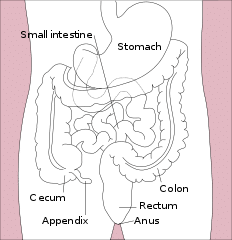Author Interviews, Heart Disease, JAMA / 07.11.2018
Few Than 10% in Large Study Have Optimal Cardiovascular Health
MedicalResearch.com Interview with:
Dr. Jean Philippe Empana, MD, PhD
Research Director, INSERM U970
Paris Cardiovascular Research Center (PARCC) Team 4 Cardiovascular Epidemiology & Sudden Death Paris Descartes University
MedicalResearch.com: What is the background for this study?
Response: In 2010, the American Heart Association (AHA) has emphasized the primary importance of the Primordial prevention concept, i.e. preventing the development of risk factors before they emerge, as a complementary prevention strategy for cardiovascular disease (CVD).
Accordingly, the AHA has developed a simple 7-item tool, including 4 behavioral (nonsmoking, and ideal levels of body weight, physical activity and diet) and 3 biological metrics (ideal levels of untreated blood pressure, fasting blood glucose and total cholesterol) for promoting an optimal cardiovascular health (CVH). The relevance of the concept and of the tool has been several times reported by individual studies and meta-analyses (combining the results of several studies) showing substantial and graded benefit for cardiovascular disease but also mortality, quality of life and even cancer risk with higher level of CVH. However, most studies relied on one measure of cardiovascular health.
In the present work, using serial examinations from the well-known Whitehall Study II, we described change in CVH over time and then quantified the association of change in cardiovascular health over 10 years with subsequent incident cardiovascular disease and mortality. This analysis is based on 9256 UK men and women aged 30 to 55 in 1985-88, and thereafter examined every 5 years on average during 30 years.
(more…)




 Dr Sarah Myers PhD
Honorary Research Associate
UCL Department of Anthropology
MedicalResearch.com: What is the background for this study?
Response: Postnatal or postpartum depression is unfortunately common after giving birth; a figure often quoted is 15%, but some studies have found much higher numbers. Postnatal depression is associated with a range of poorer outcomes for mothers and their infants, and the financial costs of treating maternal mental ill health put health services under considerable strain. Studies have found that providing additional emotional support to at risk mothers, for instance via peer support programmes or regular phone calls with health visitors, can reduce the likelihood of them developing the condition. Therefore, it is really important that we understand the full range of risk factors that put women at greater risk of becoming depressed after giving birth.
There is increasing evidence for a link between inflammation and depression, with factors that trigger an inflammatory immune response also increasing the likelihood of depressive symptoms. The opens up the possibility of finding new risk factors for postnatal depression based on known associations with inflammation.
Dr Sarah Myers PhD
Honorary Research Associate
UCL Department of Anthropology
MedicalResearch.com: What is the background for this study?
Response: Postnatal or postpartum depression is unfortunately common after giving birth; a figure often quoted is 15%, but some studies have found much higher numbers. Postnatal depression is associated with a range of poorer outcomes for mothers and their infants, and the financial costs of treating maternal mental ill health put health services under considerable strain. Studies have found that providing additional emotional support to at risk mothers, for instance via peer support programmes or regular phone calls with health visitors, can reduce the likelihood of them developing the condition. Therefore, it is really important that we understand the full range of risk factors that put women at greater risk of becoming depressed after giving birth.
There is increasing evidence for a link between inflammation and depression, with factors that trigger an inflammatory immune response also increasing the likelihood of depressive symptoms. The opens up the possibility of finding new risk factors for postnatal depression based on known associations with inflammation.

























